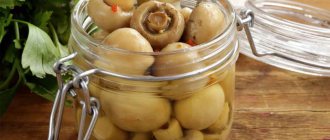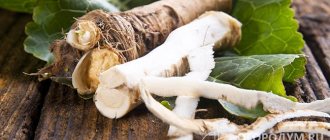Having collected a generous harvest of spicy vegetables in the fall, every zealous owner worries about its safety. How to store garlic so that it lasts until the next harvest without losing its taste and consumer qualities is the most important question that worries every vegetable grower.
When keeping a house in winter, heads that are in unfavorable conditions can either dry out or rot. Teeth sometimes even sprout, confusing the season. They can be damaged by pests or diseases. If stored improperly, garlic withers, losing the lion's share of nutrients and vitamins.
Garlic is the best vegetable in the home medicine cabinet
Garlic cloves contain a special enzyme - allicin. It has a strong bactericidal effect and can even defeat diphtheria. Garlic vapors disinfect the air and can kill bacteria and microorganisms that are dangerous to humans, including staphylococcal ones. Garlic was brought to Russia from Byzantium back in the time of Vladimir the Red Sun; it is likely that the epic heroes coped with illness with the help of this miraculous plant. Garlic caused the first workers' strike in human history. According to one version, during the construction of the Cheops pyramid in Ancient Egypt, slaves refused to perform their duties only because the spice was not delivered to the site on time. And how many lives garlic tincture saved during the plague in the Middle Ages is difficult to calculate. The garlic bulb contains more than four hundred essential substances for humans, including: vitamins C, B, and D, calcium, sodium and potassium, phosphoric and sulfuric acids.
How to plant garlic before winter: do it correctly and get a large head. In a special publication on our portal, we will tell you in detail about how to properly plant garlic before winter. You will learn about the depth of planting garlic, the rules of care and harvesting.
How to store garlic at home in winter? A thrifty housewife will always find a way to ensure that the vegetable retains its beneficial properties until spring. However, not every garlic tolerates long-term home storage well. The time and place when the vegetable was harvested are of fundamental importance.
Rules and recommendations for preserving garlic
How to store onions
The best place to store this valuable vegetable is a special storage facility with a temperature no higher than 3 degrees Celsius (and no lower than 1 degree) and a relative humidity of about 90 percent. You can use a potato storage facility for these purposes.
If a gardener has a private house, it will not be difficult to arrange a basement for storing garlic wealth, but you can organize suitable conditions even if you have an ordinary city apartment.
Of course, in a multi-storey building there are a lot of heating devices, but you can choose a storage facility that is maximally protected from heating:
- storage room;
- fridge;
- insulated (but unheated) balcony or loggia.
It is better to put the garlic in the refrigerator after wiping it dry and distributing it in paper bags, thoroughly salting it. The basic rule is not to store garlic together with other vegetables, then they will last until spring comes with a new garlic harvest.
Pantry room
Peeled cloves can be frozen by wrapping them in cling film or foil. Experts recommend processing finely chopped garlic into seasonings for long-term (about 4 months) storage.
The basic requirements for proper and long-term storage of garlic are: a constantly ventilated, sterile room (place) with low humidity and a temperature close to zero. There are differences in the shelf life of winter (harvested in late July) and spring (harvested in mid-August) garlic: the first can last until the New Year at most, the second even until the next harvest.
The key to successful storage is the correct time for collecting raw materials. So, garlic should be collected only in dry weather, preferably in the evening. The heads should be allowed to air dry for several days, protecting them from sunlight. Only after this should we begin processing for storage. The roots should be cut, burned with an open fire, only a two-centimeter part should be left from the stem.
Another trick is that it is best to store heads that have three covering scales; they will last much longer. The surface of the garlic must be intact, without cracks. During storage, it is necessary to monitor the condition of the heads and immediately get rid of rotten, soft, wrinkled or spotted specimens.
If excess moisture in the garlic causes sap flow and sprouts appear, you can still preserve it for some time by cutting off the sprouts and putting the heads in a colder, darker storage.
The question of how to preserve the vitamin harvest of garlic from the garden or purchased at the market is asked by any housewife who uses this valuable vegetable in cooking. By following the recommendations of experts, you can ensure that there will always be aromatic and healthy garlic dishes on the table, right up to a new fresh harvest.
0 0 votes
Article rating
Varieties of garlic. Which one is best stored?
For winter storage of garlic at home, a vegetable harvested at the end of summer is more suitable. It is also called spring. Sometimes the collection of such plant species can continue until the end of September, and it is important to take into account humidity and precipitation. If there has been little rain, this will have a better effect on the quality of the crop, and the storage time of such garlic will increase. In addition, spring garlic tolerates temperature changes better, it has time to gain strength, and it can be stored even at room temperature without special treatment for a long time. Some breeders identify several varieties that tolerate winter storage better than others: Spas, Sofievsky, Lyubasha, Ukrainian White, Sochi.
Garlic - open your face! Collecting garlic correctly
Even before harvesting, it is necessary to study the beds and know which areas have “dried out” and which, on the contrary, have collected excess moisture. It is better to choose those vegetables in which there are no “distortions” in the beds. It is better not to water the garden bed a week before harvesting. Optimal humidity is one of the most important conditions for product preservation.
It is necessary to collect garlic in dry weather; dig up the garlic carefully so as not to damage the bulbs. If the rhizomes or heads are still slightly damp, you can dry them in the open air on a blanket. Warm rays and a breeze are what can bring garlic into the form necessary for further processing. It is better not to touch or peel the stems and rhizomes for three days, during which time nutrients continue to flow from the stems into the bulb.
Difference in timing for spring and winter
Spring garlic is stored better and longer than winter garlic. At the same time , winter crops germinate less often, but their cloves dry out after 5-6 months and become empty.
That is, it is possible to preserve fresh winter garlic only until December or the first days of January. Whereas spring crops, when comfortable conditions are created, are well preserved until planting, and sometimes until a new harvest.
What to do if it sprouts?
There is no point in storing sprouted garlic. If you process it in time, the cloves will not lose their sharpness and piquancy of taste and aroma.
Therefore, if green sprouts are found, it is recommended to make a canned product from such a product for the winter, freeze the ground mixture, or prepare a dried spice.
How to store young garlic so it doesn't dry out
Young garlic from the garden
Bright green shoots of garlic are among the first to appear in the garden beds. They are not as sharp, less burning than the heads, in which lobules have not yet formed. This is the perfect seasoning for a spring salad. However, young garlic quickly loses its appearance and after a few days it weathers and rots. Some housewives do not lose hope and try to freeze such shoots.
The best way to preserve young garlic for the winter is vacuum packaging.
Sometimes garlic dries out during storage. Why is this happening? Often the air in apartments is too dry. Vacuum packaging helps retain moisture. This modern method has already been appreciated by many housewives. Products in vacuum packaging last longer, do not dry out, and do not spoil as much. Another way is to pour sunflower oil over the garlic. In an oily “package”, provided it is kept in the refrigerator, garlic can last for two or three months.
Garlic salt is simple and convenient
If you have a small amount of garlic, you can always make an excellent dressing from it, which is always useful in the kitchen. There are two cooking options. Clean your teeth, rinse, dry and pass through a meat grinder. Add salt to the resulting mass in a 1 to 1 ratio, mix everything well and package it in clean, dry jars. Close the containers tightly with lids. Store the product in a cool place - in the refrigerator, on the balcony, in the basement for 6 months.
If you need to preserve the product longer, first dry the garlic, then grind it into powder, add salt. Keep in hermetically sealed glass jars in a table or kitchen cabinet at room conditions for 1-2 years.
How to properly prepare freshly harvested garlic for storage
Garlic in nets
Garlic is an unpretentious vegetable when stored. If you follow a certain algorithm during the selection and packaging of the material, it is perfectly possible to store garlic in your apartment in the winter until spring. How can he best preserve himself?
Basic moments:
- First rule ! If you decide not to peel the garlic, it is best to store it cool.
- Many housewives, worried about how to preserve garlic in the winter, scorch the rhizome sections with a candle , this prevents the vegetable from rotting and the tops from sprouting.
- The key to the safety of garlic is its regular inspection . This is especially important for preparations that are planned to be stored at room temperature; cloves may eventually lose their “marketable” appearance due to fungi caused by excess moisture. Therefore, recently harvested garlic should not be packaged in plastic (it is better to replace them with paper bags). Otherwise, excess moisture can lead to rotting. It is important that at first the garlic is stored either in nets or scattered on the windowsill.
Method 3. With preliminary waxing
When stored in braids or glass jars, garlic may dry out over time. The only way to avoid evaporation of moisture from the surface of the bulbs is to pre-wax them.
Remove the top scales from the dried garlic, shorten the stem to 2-3 cm, cut off the roots. Then dip each head for 1-2 seconds in paraffin melted in a water bath.
When the bulbs are dry, put them in a net and hang them in a dark, well-ventilated place.
You can also store garlic in a nylon stocking.
How to properly store garlic at home
Storing garlic in winter in a city apartment is not an easy task. It is believed that the ideal temperature ranges are from +15 to +20 degrees, but if the housewife is ready to allocate space in the refrigerator (not in the freezer!), then it is necessary to take into account that the lowest temperature is +2 degrees. Humidity levels are moderate - from 50 to 70%.
Compliance with these requirements will help to optimally store garlic in winter in a city apartment. It is best to use a cellar. Typically, garlic heads are braided or hung in nylon bags. The main conditions are optimal humidity and the mandatory presence of a hood for air ventilation.
Option for storing garlic underground
There are many options in winter. After all, the lower the storage temperature, the more beneficial microelements will be preserved in the garlic. A small closet box under the window sill with the possibility of ventilation or a box on the balcony will do. The main thing is to monitor the temperature.
On the loggia or balcony
These are suitable places, but in winter they must be heated. If there are cabinets and enough space, then the vegetable is placed in a container:
- Wooden boxes with slots for air ventilation. The heads are not separated into cloves; they are placed whole and sprinkled with salt or flour.
- Baskets. The most suitable container. The weaves leave spaces for air movement. The fruits winter well in such conditions.
- Stockings or tights. The old way. Suitable for tight balconies. When hung on a nail, stockings will not take up any useful space.
It will not be possible to save winter garlic until the next harvest; it is better to process it into paste and seasoning. Spring planting will last longer.
Basic ways to store garlic
There are several options for storing garlic. Conventionally, they can be divided into two types - methods that require processing and those that do not. In order to better preserve unprocessed garlic, it must be kept cool: this can be a cellar or an insulated balcony. It is important to isolate processed garlic from air. Use special boiled dishes or oil solutions.
Garlic preparations in a glass bowl
Option for storing garlic in open jars
Glass containers, jars, bottles are one of the old ways of storing garlic. They perfectly preserve peeled cloves (in the refrigerator) or whole vegetables in their husks. Unpeeled garlic is best stored this way. How to store garlic in a jar? They sort it out and scorch the places where the cuts are made. Banks are stored in a cool place.
Can garlic be stored in the refrigerator?
If we compare the cellar and the refrigerator, the latter method, as a rule, helps to preserve peeled garlic in the refrigerator. The cloves can be packed in plastic bags or placed in jars, however, the containers must be tightly closed. Garlic can last for 2-3 months. How to store pureed garlic in the refrigerator? It is passed through a meat grinder and packaged in vacuum bags or special bags with a clamp. In this form, the vegetable will be stored for up to six months. Can this garlic be stored in the freezer? Yes, it is possible and quite successful.
Grated garlic
Storing garlic sprinkled with salt
Contact with air is harmful to many products. Garlic is no exception. Salt helps prevent this contact and absorbs excess moisture; in addition, a bulk natural antiseptic helps prevent the development of fungus in plants. Sometimes storing garlic in a jar with salt is allowed.
Garlic in salt
This method is usually used to store unpeeled heads of garlic. Housewives use cans or boxes as containers.
Storing garlic in oil
Oil storage option
Vegetable oil here acts as a protective shell for the peeled onions. This is a kind of ready-made semi-finished product for dressing salads. Olive or sunflower oil has an interesting spicy flavor that will add piquancy to the dish. You can add both garlic cloves and stems. In the refrigerator, a tightly closed container can last for several months without losing the taste of the contents.
Storing garlic in paraffin film
Housewives often use this option when the quality of drying garlic may raise questions. Paraffin will protect the garlic from possible moisture and creates a kind of protective cocoon from germs and bacteria. And even if one vegetable rots inside, the rest will not suffer. In order to make such a “coat,” garlic bulbs are dipped in melted paraffin. The sequence of actions is reflected in the table.
Treatment of rhizomes with a candle
| Photo | Action |
| Spring garlic | Whole, strong onions are peeled. It is important to ensure that the skin is not damaged or chipped. |
| Rhizomes and stems are scorched with a candle, and the same is done with the tops. | |
| Warming up the paraffin | Heat the paraffin. It is important to use a new candle. This will ensure maximum safety and security. |
| Paraffin treatment option | Holding it by the tail, dip the garlic head into paraffin. At this stage, the main thing is not to burn your hands or small children nearby. Leave to cool. The film usually hardens within a few minutes. |
This method is one of the most effective - garlic will not change its original properties for six months.
Garlic in fabric bags
Garlic in fabric bags at room temperature does not last long, however, if you place such containers along with the contents in a cool place, then thanks to increased ventilation, this storage option can be quite effective. This is how vegetables are stored in food warehouses. Sometimes nylon bags are used instead of fabric ones.
Both whole heads of garlic and cloves can be stored in flour . In the latter case, the container must be tightly closed.
Garlic in flour
Flour performs the same role as salt, excluding bactericidal properties: it absorbs excess moisture, promotes some ventilation and maintains a uniform temperature regime.
Instead of flour, you can use sawdust, ash or onion peels. They perform the same functions: protect and absorb excess moisture.
Garlic in cling film
I would also like to dwell on storing garlic in cling film . Sometimes this method can help out the housewife when she needs to keep the remnants of already peeled garlic from drying out. The film can serve as additional protection for already processed garlic, for example, drenched in paraffin. This is a very fragile coating, so in this case it is recommended to use film. On the contrary, it is not recommended to wrap freshly harvested garlic in cellophane. The moisture most likely has not yet evaporated, which means the “steam effect” can provoke rotting.
One of the interesting ways to use culinary film for storing garlic is to install special tucks. To do this, dried garlic is placed in plastic bags and buried in a personal plot. It is important to choose a place that will provide access to the “treasure” at any time.
conclusions
There are many ways to store garlic. Both city residents and homeowners can find one that suits them. Garlic is quite picky, storing it is not difficult; it is only important to pay sufficient attention to harvesting, drying, sorting and preparing for storage.
All the methods presented in the article are convenient, tested by many housewives and allow you to use the spicy vegetable in your dishes all year round. So don’t worry, just choose the one that suits you best and get ready to harvest.
What can happen if storage conditions are violated
Sometimes, despite efforts, some of the vegetables stored for the winter may go to waste. In this case, most likely, the main points that we talked about earlier were violated: the humidity requirements or temperature conditions were not met, or when selecting and sorting, the housewife did not notice the rotten vegetable. There are extremely unpleasant consequences - several “mortgages” disappear. It happens that water gets into the cellar in the spring, or too dry air in the kitchen completely deprives garlic of all chances to be used in cooking.
The garlic has begun to deteriorate and should not be eaten.
How to prevent this outcome
How to store garlic in an apartment until spring? First of all, decide for yourself whether you are ready to handle such volumes of storing and processing garlic. It will be strange if a person decides to turn a one-room apartment into a warehouse. In this case, it is easier to buy garlic in the store. During the selection and purification stages, it is better to involve more assistants. This will make it easier to ensure control at every stage.
Storage Features
To keep garlic fresh and flavorful for a long period of time, it is important to find the right place for it. It must meet the following requirements:
- have a comfortable temperature;
- be out of direct sunlight;
- well ventilated;
- have favorable humidity.
The optimal storage temperature for garlic differs depending on its variety:
- Sowing of spring varieties of vegetables is usually carried out in the second half of April, and harvesting - in early August. They have good shelf life and can be stored throughout winter and spring. The most suitable temperature for storage is from +16˚ to +20˚ Celsius. Air humidity should be between 50-60%.
- Winter garlic is usually planted in late September - early October. The harvest takes place in July. This variety of vegetable is quite finicky in storage and rarely lasts until spring. The most suitable temperature regime is 0˚…+3˚ Celsius, air humidity is 70-80%.
To ensure the preservation of the taste and beneficial properties of hot spices, it is necessary to select healthy, ripe heads without signs of damage for storage. The husk should fit tightly to the teeth and be strong.
Before storing garlic for long-term storage, it is necessary to prepare it:
- If you dig up a vegetable yourself, you should dry it in the sun for several days;
- dry stems need to be trimmed, leaving no more than 5 cm;
- To prevent the crop from sprouting during storage, experienced housewives recommend scorching the stems on a fire or stove.
A little about garlic
Garlic bulbs have been cultivated for more than 5 thousand years. Today this vegetable is popular all over the world. Used in the diet in fresh, dried, pickled, salted form. Included in many dishes, seasonings, sauces. It is added to soups, canned, stewed, fried.
About beneficial properties . Garlic, due to its unique composition, is popular in medicine. The cloves contain 10–28% vitamin C (leaves contain 70–80%), group B (1, 2, 3, 5, 6, 9) makes up 1.2–3%. Essential oils 25–74%, a large amount of phytoncides and allicin is noted. There are 19 beneficial compounds, including sitosterol, phytoncides, saponins, geraniol, flavonoids, antioxidants.
Garlic is used to produce 22 medicinal products; as a component it is included in 800 medicinal products. Tinctures and extracts are made from it to increase immunity, normalize intestinal flora, and heal wounds. The juice helps fight bacteria, fungi, and viruses. Has anti-inflammatory, antipyretic, anti-cancer effects.











